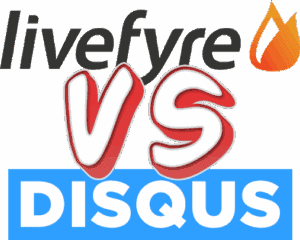There are a lot of blogging platforms out there, so why use WordPress for blogging?
LinkedIn For Context
I’ve been working with WordPress and LinkedIn lately as a blogging platform. After the experiment, I’ve concluded that LinkedIn isn’t a blogging platform for the long run. I’ve moved most of my content away from it, but still publish some of each post linking to my blog.
After exploring the benefits and drawbacks of LinkedIn, I’m more confident than ever that WordPress is the best platform to choose when blogging.
A No Brainer – WordPress For Blogging
There are a lot of options to choose for blogging and there are many that offer a few of the benefits below, but overall WordPress is the only one that provides them all, and excels at them.
Own Your Content — When you have a self-hosted WordPress (WordPress.org) website and not a WordPress.com website, you are in complete control of your content. You own your content, that means you can do whatever you want with it and present it in the best way for you.
Your content can’t be used to promote another platform or other’s work unless you choose. Your published content remains yours and you choose how it will be used.
Free services get to choose what’s presented with your content in the form of ads, links to others blog posts, and other services offered. Along with these ways providers can present your content, you lose control of the context of your content so it’s difficult to link to your other content.
Better 
On WordPress.com you’re stuck with the WordPress commenting system which lacks the ability to facilitate a good discussion. LinkedIn limits you to the point you can only have discussions nested 2 levels deep, that limits the ability for a deep discussion and it gets confusing.
A good commenting system is vital to the community of your blog. Readers need a place to comment and that starts with a good comment plugin.
Simplicity of Publishing — Getting into WordPress, writing a post and finding what you need couldn’t be easier. There’s nothing on your website but what you put there.
Nothing clutters the experience on a website more than a busy page that slows your computer down and takes a while to load.
I love the simplicity of the WordPress interface and the power it has hidden behind it, which leads me to my next point.
Customization & Simplicity — Under the hood of WordPress there’s almost limitless customization. It’s possible to start with a blog and expand beyond without much effort. With the power of plugins, a WordPress website can turn into anything.
I support 4 websites now and it’s easy with WordPress.
Extend Beyond Blogging — This one’s been the source of new companies forming because the idea WordPress has become too complex and lost its roots as a blogging platform. I see this as one of its greatest strengths.
The fact WordPress started as a simple blogging platform and has slowly grown to take on other functions shows me that its taken the time to do it right, and it has.
I started with a blog many years ago, expanded into a portfolio and recently have created two eCommerce websites using the WooCommerce plugin.
Distraction Free — I have a few things in mind when I say WordPress is distraction free. I’ll start with the obvious for those that know WordPress, the new distraction-free writing feature. This turns off all controls and gives you only what you need to write.
The next thing I have in mind is that WordPress doesn’t come with a ton of extras, it’s light when installed, but still powerful. With a few plugins, WordPress has unlimited capabilities.
When you first install WordPress on a new host, it’s amazing how lean it really is before you start loading stuff in.
Re-purpose For Your Needs — I started my blog as a place to share thoughts and document my learning. As I began accumulating projects, I expanded it to a portfolio to display that work.
Over the years I’ve built an audience and have regular traffic coming from organic Google searches and many other sources. I plan on using that visibility to turn my learning website into a source to drive consulting jobs and make it known I’m interested in projects.
WordPress Is Power Online
As you may have sensed by reading this post I’m an advocate for maintaining a regularly updated presence online. Not only am I an advocate for an online presence, specifically I’m an advocate of using WordPress for that online presence over any other tool.
LinkedIn is a great tool for your online resume and connecting to other professionals, but its power ends there. WordPress picks up the slack from other websites that don’t give you the control over your content that you should have when creating a professional presence online.
Why Do You Love/Hate WordPress
I’ve gone on about the great things to love about WordPress, but I’m honestly at a loss to why it’s not a good option. I’d love to hear why you love or hate WordPress.
What am I missing?





2 comments
Obviously we mostly agree but …
We had this chat last week on SEO with the subjacent debate that if you write great content it’s enought to be found and gain readers. While I stand on your side from the ethical point of view, I stand for maximimizing exposure of our work at the cost of some calculated compromissions with SEO and Medias. We are not anymore at the Far West epoch of Internet. To gain readership and attention one should take action.
What LinkedIn, Medium and wordpress.com bring is exposure. While you may have regular readers on your blog and be found, you don’t have the huge traffic these people drag.
They arranged a growth, attention sucking machine to bring their users to spend time reading content available there. It’s almost adddictive. If you are not there, someone else will be and get this exposure. So it’s not: I’m not here but find me elsewhere with the same attention span. Reading your post just became yet another task and will be read on another occasion.
They built an experience for reading, recommending and commenting not available on your blog. very important is that you don’t need to log or verify identity. It’s all included. So as a reader if I want to like or recommend or comment it is instant and predictable. WordPress has been around for a while and never managed to build something as efficient and enjoyable. Considering their respective cash flow and capacity of innovation it’s not going to be easier. WordPress is also dragging behind them a heavy weight of legacy. PHP is a thing of the past. It is the Fortran or Cobol of 2015. I say this from direct experience.
What is absolutely sure is that we shouldn’t surrender our rights and autonomy to publish our own content to anyone. WordPress is also a good place to brainstorm and write. It’s more writer friendly I would say. You can add plugins, your own code, you styles. You have full control of it.
Paul Jarvis wrote a comment on Buffer at https://blog.bufferapp.com/how-to-use-medium that the best is to publish on your post, let a few days go and then only publish on a secondary plateform.
Once reader found you they may want to come again and read everything you share directly from your web site, subscribe to your mailing list. That will come after.
Bottom line, you definitely need a place you can call home on Internet and it’s your WordPress blog. You also need traffic: I think that LinkedIn, Medium or anything that could help should be used.
I have a decent audience already built up on LinkedIn but really I get more traffic from industry websites (eLearning Learning) on my Technkl blog than I could ever get from LinkedIn. Truth is, I don’t find LinkedIn brings me much traffic at all, even when I was posting my entire post in sync with my blog.
There is an exception to that though, I would on occasion get a post featured in LinkedIn hot topic (social media, etc.) then I’d get a lot more traffic, but temporarily. I still don’t get as much as I’d get from my blog over time though, it’s more of a spike and then drop off to nothing.
Also, I never get the engagement from LinkedIn except for a like, but the comments are lacking and the platform for commenting doesn’t help conversation (as you pointed out a while back 🙂 Honestly I don’t like the like button, I experimented with it on my site but it doesn’t tell me anything except the person might have read my full post (but they might not have and just liked the first paragraph lol).
I would rather read your posts on your blog (or in my rss reader which makes it super easy to go to your blog) so, while I do read stuff on LinkedIn, I’ve curbed the habit and instead choose to click through to the blog to read it in a better format. LinkedIn is too busy for me and moves right onto a new article just setting them up one after another. It’s like an assembly line of blog posts lol.
It works for some, sure, but for the most part it won’t prepare you for the future, it’s a short term plan at best.
Appreciate your comment Bruno. I’m still experimenting on how LinkedIn can work to improve my blogs, not take away from them, still a work in progress 🙂 I need to write a post about my experiments and trying different things I’ve seen others do.